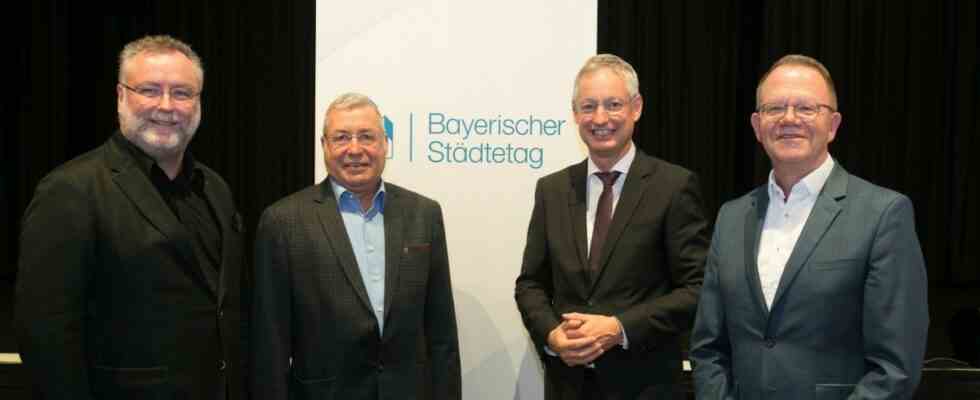Municipalities are currently faced with major tasks: cushioning tax shortfalls due to the corona pandemic, ensuring the supply of electricity and heat despite horrendous energy prices, fighting the shortage of skilled workers in childcare and organizing the accommodation of more and more people fleeing war and displacement. At the district assembly of the Bavarian City Association on Monday in Ismaning, the mayors of Upper Bavaria called for support from the federal and state governments. However, only 40 of the 105 top local politicians came – Corona and colds are currently taking their toll on local politics.
Markus Pannermayr, Chairman of the Bavarian Association of Cities and CSU Mayor of Straubing, said after the meeting that the energy supply situation was extremely tense. You have received guidelines from the federal government, for example to lower the temperature in public buildings and swimming pools, but: The situation is very heterogeneous, every place has to see for itself where savings can be made. As far as possible emergency scenarios are concerned, Pannermayr advocates central control by the district offices, where civil protection is based anyway. This is where the threads should come together, especially when it comes to protecting the critical infrastructure.
It is important to the mayors to preserve municipal or municipal utilities. According to the President of the Association of Cities, these must “remain capable of acting” because they are of fundamental importance for the water supply, ensuring local public transport and the energy transition. The city council is therefore calling for a protective shield “if there are liquidity bottlenecks in winter,” says Pannermayr.
Pannermayr described the compromise negotiated last weekend on municipal financial equalization as “viable”, because the so-called key allocations, i.e. payments not earmarked to municipalities with weak taxes and levies, increase by 6.7 percent. This is a contribution to stabilizing city and municipal budgets in times when municipalities have to spend more and more money, for example for the construction and operation of schools and day-care centers, with construction costs increasing enormously at the same time. However, the mayors expect difficult negotiations for the upcoming budget consultations for next year.
“We have to concentrate on the essentials,” says Ismaning’s mayor
“We have to concentrate on the essentials,” emphasized Alexander Greulich, SPD mayor and host of the district assembly in Ismaning. In his municipality, the tax capacity has not increased to the same extent as elsewhere, which will mean that the municipal council will have to give more weight and prioritize further, according to Greulich.
What unites the municipalities is their concern for ensuring childcare in view of the lack of skilled workers. “What we are seeing is just the beginning of a development,” emphasized Pannermayr and, on behalf of his fellow mayors, pleaded with him to unravel the existing federal and state “funding jungle” and pay out grants quickly and easily, as well as secondly, to remove the bureaucratic hurdles, for example when recruiting personnel. According to the head of the Ismaning town hall, the municipalities deserve “a bonus of trust” because in recent years they have proven several times “that we are reliable partners”.
When it comes to accommodating refugees, the city council is counting on the continuation of financial support from the federal government, as it was until 2021. According to Pannermayr, the most recent summit with representatives of the Federal Ministry of the Interior, the state ministries and local authority associations was a start, but binding commitments to bear the costs are still pending.

